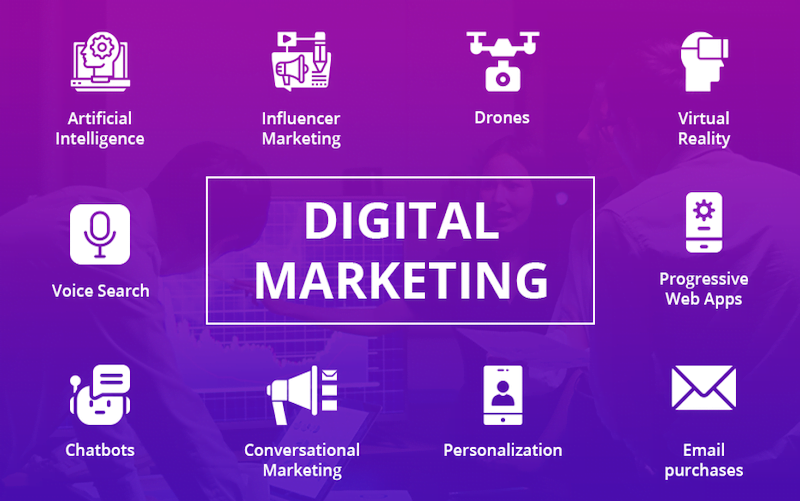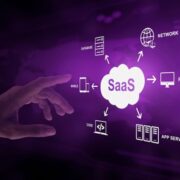Top 10 Digital Marketing Technology Trends for Startups in 2023
As we move into 2023, digital marketing technology continues to evolve rapidly. Keeping up with these changes can be challenging, particularly for startups with limited resources. However, staying on top of the latest digital marketing trends is critical for any business that wants to remain competitive in the modern landscape. Startups can learn more about these trends by enrolling in digital marketing courses that cover these topics in-depth
Before delving into the top 10 digital marketing technology trends for startups in 2023 and their benefits, it’s important to emphasize the significance of keeping up-to-date.
Importance of Staying Up-To-Date With These Trends for Startups
For startups, staying up-to-date with the latest digital marketing technology trends is critical to staying ahead of the competition and achieving success. Here are some reasons why it’s essential to keep up-to-date with these trends:
Better ROI
By staying up-to-date with the latest digital marketing technology trends, startups can improve their ROI. For example, AI can save time and money in digital marketing by improving ad targeting and conversion rates. Similarly, programmatic advertising can help them target specific audiences with relevant ads in real-time, leading to more efficient and effective campaigns.
Improved Customer Experience
Digital marketing technology trends like chatbots and personalization can help startups provide a better customer experience. Chatbots can answer frequently asked questions, provide personalized recommendations, and even make sales, while personalization allows startups to create customized marketing campaigns tailored to each customer. By providing a better customer experience, startups can increase customer loyalty and retention.
Increased Engagement and Brand Awareness
Digital marketing trends like video marketing, influencer marketing, and AR/VR can help startups increase engagement and brand awareness. Influencer marketing allows startups to reach new audiences and build customer trust, while AR/VR can create interactive customer experiences. Startups can attract new customers and differentiate themselves from competitors.
Adapting to Changing Consumer Behavior
Consumer behavior changes often, so startups must adjust to stay relevant. For example, voice search is becoming increasingly popular, and startups need to optimize their content for voice search if they want to remain relevant. Similarly, social media is a powerful tool for startups, and they need to use it to engage with their customers, build relationships, and gather feedback.
Top 10 Digital Marketing Technology Trends for Startups in 2023

1. Artificial Intelligence (AI)
Artificial Intelligence has been one of the most significant advancements in recent years, and it has been rapidly adopted by businesses worldwide. AI enables businesses to automate their operations and provide personalized experiences to customers. AI-powered chatbots, for example, can respond to customers’ queries and provide assistance, enhancing customer satisfaction and engagement.
Startups can also leverage AI to analyze customer data, predict their behavior, and make data-driven decisions. With AI, businesses can streamline processes, reduce operational costs, and improve performance.
2. Voice Search
Voice search is becoming increasingly popular as more people use digital assistants like Amazon’s Alexa, Google Assistant, or Apple’s Siri. Voice search is convenient, quick, and hands-free, making it an excellent option for busy people who are always on the go.
To optimize for voice search, businesses must ensure their website’s content is conversational and uses long-tail keywords. This way, when someone asks a question using their voice assistant, the search engine can provide the most relevant answer.
3. Video Marketing
Video marketing has been growing in popularity for years, and it’s not slowing down anytime soon. With the rise of social media platforms like TikTok and Instagram Reels, short-form video content has become more prevalent than ever.
Startups can use video marketing to promote their products or services, showcase their brand personality, and engage with their audience. Video marketing is highly engaging and shareable and can help businesses stand out in a crowded digital landscape.
4. Influencer Marketing
Influencer marketing involves collaborating with social media influencers to promote a product or service. Influencers have large followings on social media and can leverage their influence to endorse a product or service, increasing brand awareness and credibility.
Startups can use influencer marketing to target specific audiences and reach a wider audience. When done right, influencer marketing can increase engagement, generate leads, and drive sales.
5. Chatbots
Chatbots are automated messaging systems that can communicate with customers in real time. They are highly efficient and can provide assistance to customers 24/7, enhancing their overall experience.
Startups can use chatbots to answer frequently asked questions, provide recommendations, and guide customers through their purchase journey. This way, businesses can provide personalized experiences to customers while saving time and resources.
6. Social Media Stories
Social media stories have become increasingly popular in recent years, and for a good reason. Stories are highly engaging, quick, and easy to consume, making them an excellent option for businesses to showcase their brand personality and promote their products or services.
Startups can use social media stories to highlight their products or services, share behind-the-scenes footage, and engage with their audience. Stories can help businesses build stronger customer relationships and increase brand loyalty.
7. Personalization
Personalization is becoming increasingly important in digital marketing, and for a good reason. Personalized experiences can increase engagement, improve customer satisfaction, and drive sales.
Startups can use personalization in various ways, such as tailoring their marketing messages to specific audiences, offering personalized product recommendations, and providing customized content based on customers’ preferences and behavior.
8. Augmented Reality (AR)
Augmented Reality is a technology that overlays digital information into the real world. AR can enhance customer experience by providing a more immersive and interactive experience.
Startups can use AR to showcase their products in a more engaging way, allowing customers to try them out virtually before making a purchase. AR can also provide interactive product manuals or enhance marketing campaigns, making them more memorable and effective.
9. Social Commerce
Social commerce involves selling products directly on social media platforms. With more people spending time on social media, social commerce has become popular for businesses to reach their target audience and drive sales.
Startups can leverage social commerce to create shoppable posts, tag products in their social media posts, and provide a seamless purchase experience for their customers. Social commerce can help businesses increase sales and revenue while providing a convenient and user-friendly shopping experience for their customers.
10. Blockchain Technology
Blockchain technology is a decentralized digital ledger that records transactions in a secure and transparent way. Blockchain technology has the potential to revolutionize digital marketing by enabling businesses to provide secure and transparent transactions, improve data privacy, and increase transparency.
Startups can leverage blockchain technology to create secure payment gateways, enhance data privacy and security, and provide a more transparent supply chain. Blockchain technology can help businesses build customer trust, increasing customer loyalty and brand reputation.
Conclusion:
In conclusion, staying up-to-date with digital marketing technology trends is essential for startups to remain competitive and successful in 2023. It can improve ROI, customer experience, engagement, and brand awareness and help businesses adapt to changing consumer behavior.
With the proper knowledge and tools, startups can leverage these trends to grow their businesses and gain a competitive edge in the digital marketing landscape.
Read More:Technology Trends and Approaches in Web Development




